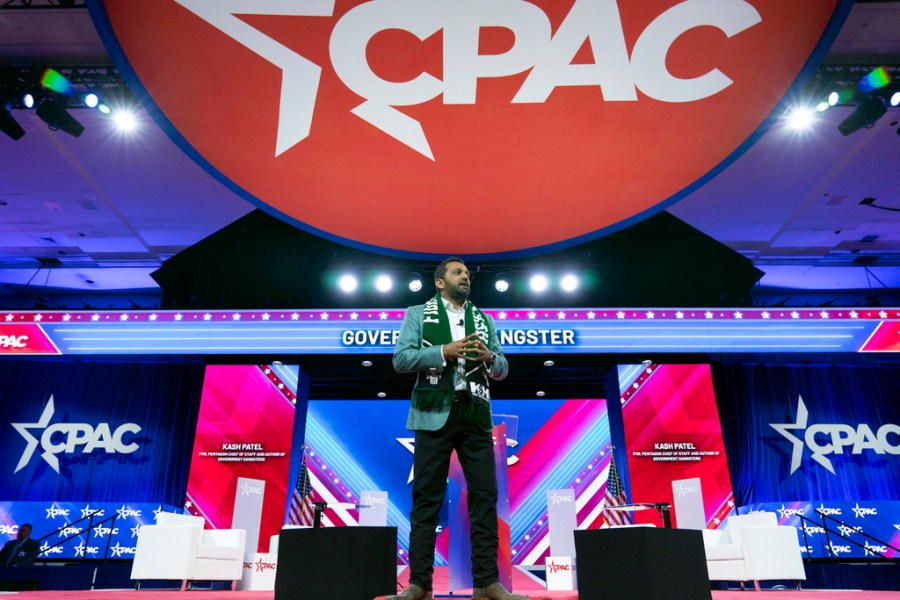
You can’t just say you’re a conservative anymore. The question now is what kind of conservative you are.
There have always been factions among conservatives, but there was also some overlap on several issues. When Ronald Reagan ran for president, he recognized three primary factions: economic conservatives, social conservatives and foreign policy hawks. Reagan was able to appeal to all three. That will be much harder with today’s conservative divides.
Identifying and espousing certain principles — for example, support for free markets, limited government, strong defense and conservative social values — was always a hallmark of traditional conservatives. On Sept. 11, 1960, 100 young conservatives convened at National Review editor William F. Buckley’s home in Sharon, Conn., and drafted a set of 12 principles, referred to as the “Sharon Statement,” which defined the post-war conservative movement.
Today, some traditional conservatives have created an updated version of the Sharon principles, highlighting their continuity to a movement that began 65 years ago. They have adopted the term Freedom Conservatives, or FreeCons, as a way of distinguishing themselves from other conservative factions.
Another group also stresses the importance of principles, and most would consider themselves aligned with the post-war conservative movement. They, too, have adopted a list of principles, and they explain why. “Principles define who we are, what we believe in, and the type of country we’ll become.”
But they also highlight the importance of who we elect to lead us. To this group principles “anchor our politics to core values and ensure that those we elect today wield power tomorrow according to some blueprint larger than themselves.” Just so you don’t miss the point: “Today in America, who you support [that is, President Trump] has become more important than what you believe. As a result, the terms ‘conservative’ and ‘Republican’ are now mere team names that have lost all meaning.”
Then there’s the third group. Some of them will claim to be traditional conservatives, but their allegiance is really to President Trump. These are the MAGA conservatives. They don’t have a list of principles because their only principle is whatever Trump says on any given day, even when that changes from one day to the next.
Three examples. Most of the staunchest Trump followers likely thought he was going to scale back U.S. entanglements in other countries’ affairs — i.e., a more isolationist position. Now they have to at least claim to support taking over the Panama Canal, buying Greenland and annexing Canada. Oh, and nation-building in Gaza.
Second, most Trump followers likely thought they were the law-and-order party, backing law enforcement. Now they defend pardoning even the most violent offenders who attacked the Capitol on Jan. 6 and dropping federal charges against Democratic New York Mayor Eric Adams, even though high-ranking Republican Justice Department lawyers are convinced Adams is guilty of various crimes (which he denies).
Third, 52 Republican senators, who would never vote for a political candidate who was a lifelong, pro-abortion rights Democrat who made his living as an environmental-justice trial lawyer — and who has espoused more conspiracy theories than disgraced talk show host Alex Jones — voted to confirm Robert F. Kennedy, Jr.
If MAGA conservatives are willing to abandon long-held conservative principles and policies, are they still conservatives? At the 2017 Conservative Political Action Conference, MAGA-aligned talk show host Mark Levin told the crowd that he didn’t think Trump was an ideological conservative, but that Trump did conservative things. I don’t know if Levin still holds that view, but it’s a fair point — Trump does some conservative things.
Basically, Trump is a long-time CEO and acts like one. Like Trump, CEOs prefer low taxes, limited regulations and efficient operations. But when a new CEO takes over, he or she is likely to shake things up, making numerous changes at will and expecting everyone to do what he says or leave. That’s Trump also. We’ll have to see how the courts respond to his shake-ups, but many of them may remind him that he was elected president of a country, not CEO of a company.
If you want to know more about the three groups, they’re all holding their annual conferences, consecutively, in Washington, D.C., in late February.
The Conservative Political Action Conference meets Feb. 19-22. It was the place where conservatives of all stripes used to go; now it’s the Trump show.
The second group mentioned above is having its Principles First Summit from Feb. 21-23. It’s their fourth year and they expect a big crowd, but it will likely be the anti-CPAC.
And then there’s the Freedom Conservatives’ FreeCon 2025 at the National Press Club on Feb. 24.
So, if you don’t know what kind of conservative you are, you can try the conferences and maybe you’ll find out.
Merrill Matthews is a public policy and political analyst and the co-author of “On the Edge: America Faces the Entitlements Cliff.”












